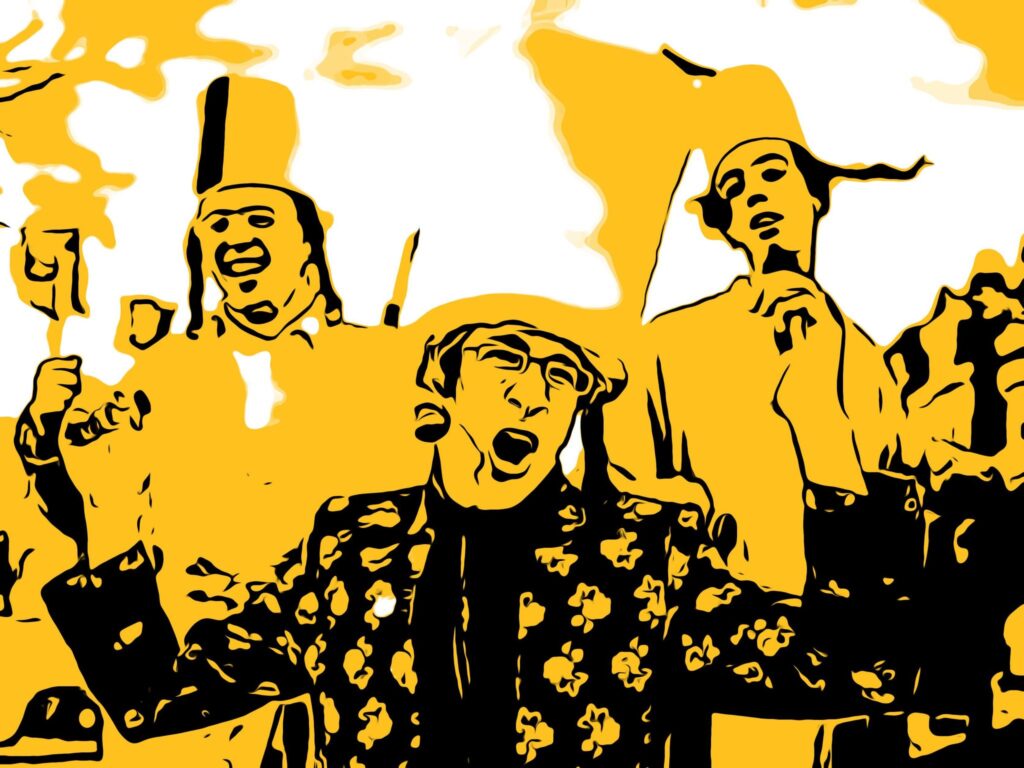Last week, during the Jewish holiday of Purim, several Hasidic children in Lakewood, New Jersey and Williamsburg, Brooklyn were spotted in Afro wigs and blackface. Apologies were issued In response to both the Lakewood and Williamsburg incidents.
But, while apologies were necessary, they aren’t nearly enough. Offensive costumes and other overt displays of racism will not stop until the deeper issue of education in ultra-Orthodox schools is addressed.
Racist Purim costumes are not new
Purim is a celebration of the survival of the Jews against a nefarious Persian official (Haman) who plotted to destroy them. During the holiday, Jews attend lively parties, give each other baskets of treats, and wear costumes.
Though there are several explanations as to why costumes are worn, the custom is generally attributed to the fact that the Queen (Esther) in the Purim story masked her Jewish identity.
While Purim costumes are typically fun and harmless, there have been disturbing exceptions. Fred Rush, the president of the local NAACP chapter noted that offensive costumes are a common occurrence in Lakewood. “This is not new. Every year on Purim they do the same thing. They do the exact same thing and I don’t think they can give a damn.” he said.
And it isn’t just in Lakewood. Racist Purim costumes have consistently been an issue within ultra-Orthodox (Haredi) communities. Blackfaced attendees have been allowed into parties. A blackfaced Purim effigy was hung outside of a Haredi home in New York. Even elected officials have unapologetically worn offensive Purim costumes.
But, why would Jews, a vulnerable minority, dress in racist costumes?
Imagine being a kid growing up in 2021 New Jersey and not knowing who Martin Luther King was, not knowing about the Civil Rights Movement, not even being aware that slavery existed in America.
This seems unfathomable. But, it is the unfortunate reality for tens of thousands of Hasidic boys. This profound lack of knowledge stems directly from the Hasidic school system. While Hasidic boys spend long hours at school, their studies are focused almost exclusively on religion. They receive only the most basic English and math instruction in their early years, and none at all after they leave elementary school.
No science, social studies, or American history is taught in most Hasidic boys’ schools.
What happens to these kids without a sufficient education?
Poverty is the most obvious detrimental effect of the Hasidic education system. Because no secular education is taught past elementary school, most young men finish yeshiva with very limited English and math skills, and the inability to pass New York Regents tests or even earn a GED. This severe education deficiency makes college almost impossible and leaves many Hasidic people dependent on government assistance. In fact, 43% of the Hasidic population in New York is poor.
But, as is evident by what happened on Purim, secular education isn’t just about earning a living. History, social studies, and science are all necessary components in raising informed, responsible citizens. For instance, without understanding the history of racism in America, these kids will be ill equipped to acknowledge or combat it, and (as occurred in Lakewood and elsewhere), may even contribute to the problem.
Another example of the importance of secular studies occurred during the pandemic. Without a sufficient knowledge of science, the Hasidic community was left extremely vulnerable to COVID and suffered devastating losses.
How can you help?
The best way to combat racism in the Hasidic community is to insist that these kids get the education that they are entitled to. New York State law requires that all non-public schools receive a substantially equivalent education to public schools. Yet, a combination of religious leaders’ stronghold over the community and the reluctance of policymakers to interfere means that this law is often overlooked for yeshivas.
Denying Hasidic kids an education not only hurts them but, as we’ve seen recently, often has a ripple effect into the broader communities and cities where Hasidic families live.
Yaffed is committed to holding New York State officials accountable to enforce the law. Join us in our fight to give Hasidic children the education they need to be conscientious and financially-independent community members.


